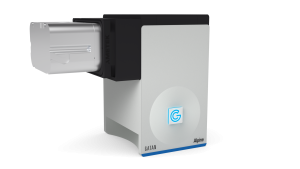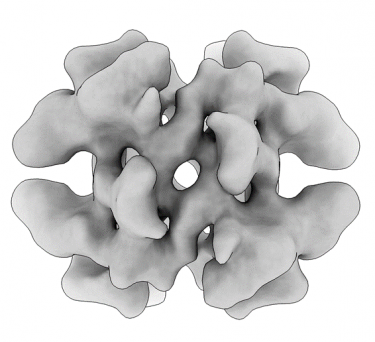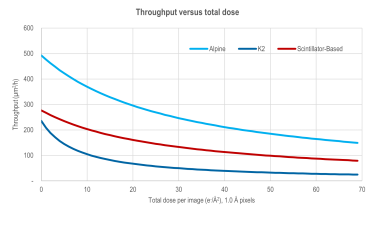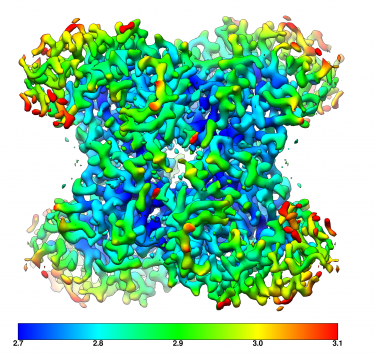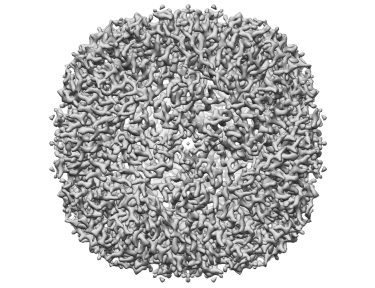Alpine® is the world’s first direct detection camera series to democratize cryo-electron microscopy (cryo-EM) imaging. By enabling the acquisition of high-resolution structures on 80 – 200 keV microscopes, the Alpine series allows routine cryo-EM research on more affordable, workhorse instruments and expands its usefulness to the larger research community.
- Two models available to match the field of view with your application needs:
Alpine (1124) – Turns 80 – 200 keV screening microscopes into data-collection microscopes with single-electron counting capabilities
Alpine Vista (1125) – Maximizes imaging throughput for your high-performance microscopes with a large FOV of 5,760 x 4,092 pixels - Delivers a detective quantum efficiency (DQE) up to 2.4-times the performance of scintillator-based cameras
- Makes the 2D classification of small molecules possible while improving macromolecule reconstructions
- Streamlines your workflow and detects failures early to produce better structures, faster
- Real-time counting ensures there is no compromise between data collection speed and quality
Model 1124 and 1125
Datasheet
Alpine Direct Detection Cameras
Related materials
Nyquist frequency
Dose fractionation and motion correction
Improving DQE with counting and super-resolution
Related products
K3® Camera
BioContinuum™ Imaging Filter
Latitude® S Software
Elsa™ Cryo-Transfer Holder
Acknowledgment
Continuing our prosperous collaborations that built the K2® and K3, Alpine is the successful result of Peter Denes' team at Lawrence Berkeley National Laboratory and David Agard.
Furthermore, Alpine is the result of prosperous collaborations with Gabe Lander's team at The Scripps Research Institute.
